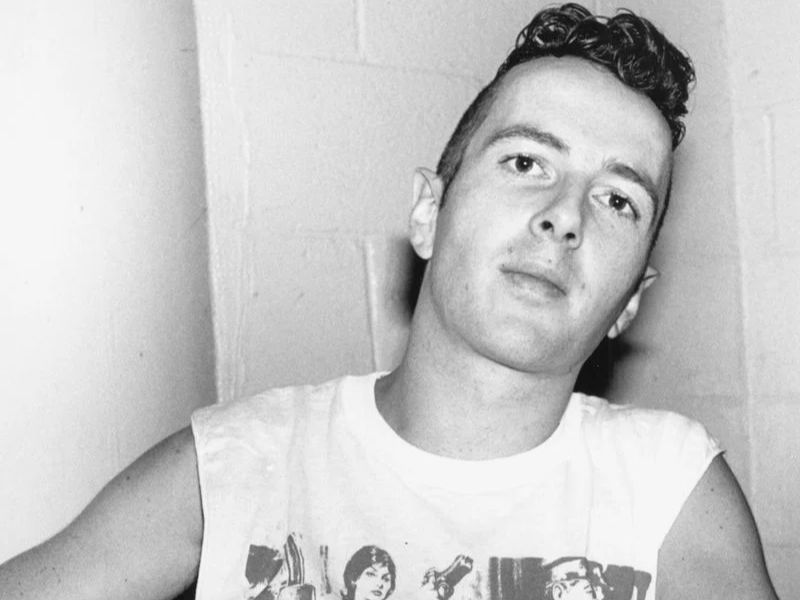Punk is one of those genres that is endlessly compared to hip-hop. That’s largely because of the two styles’ determination to challenge authority and place themselves in the middle of artistic creation, no matter the consequences. But, it is also because some of punk’s biggest names were early adopters of the new genre known as hip-hop. Debbie Harry and Blondie may well have given hip-hop it’s first number-one single, but The Clash were also huge fans.
The Clash were an astonishingly versatile band, able to bend any form of music to their will. The songs were fresh with energy and invention, and the songs were presented as if they were tackling the genre for the first time. “I was really into glam rock ’n’ roll bands,” Mick Jones recalled. “And Paul was into reggae, and then Joe was into like, Woody Guthrie, Dylan type stuff. And so it was just one of those lucky things, and then when we got Topper, he was the most fantastic drummer. It all seemed to mesh perfectly”.
By the 1980s, the band began embracing the sounds of the cities they visited, which is why it shouldn’t surprise anyone that they took to the sound of hip-hop that was emanating from the New York streets. Naturally, their antenna brought in the tribal music, holding a stronghold on Jones’ guitar playing and Topper Headon’s bouncy drum playing.
“When we visited places,” Mick Jones remembered, “We were affected by that… And for me, New York City was really happening at that moment.” The guitarist took to the streets, playing tunes from a boom box nestling on his shoulder.
“Joe looked at the graffiti artists,” he said, “And I was taking in things like breakdancing and rap.” The New York scene offered a tasty alternative to the London streets the band grew up on, and it fed into their later, more experimental work. They channelled these influences into ‘The Magnificent Dance’, which featured on the flipside to their rap single ‘The Magnificent Seven’. The band were ecstatic to hear that DJs were offering tasty remixes of their work, feeling that their work was growing more expressive with passing play. It mattered to them because they were the band that mattered.
Jones was the one who stayed truest to the genre, especially on Big Audio Dynamite, his follow-up band to The Clash. In one way they were the Wings, offering him the vessel to record any material his bandmates might otherwise have rejected. What Big Audio Dynamite presented was unvarnished, unfiltered Jones, filling a hole The Clash might have left open.
Big Audio Dynamite utilised a series of beats, samples, snippets and sound collages, culminating in a soundscape that pushed the hip-hop genre as much as it revered it. Joe Strummer got involved with the writing of No. 10, Upping St. The album fused many of the rock, pop, funk and reggae proclivities that laced the band together, but Big Audio Dynamite positioned them under a newer, more vibrant banner: hip-hop.
They developed a firm but fervent fanbase in Italy, where techno beats paraded the local clubs in Milan, and with their carefree air and penchant for revelry, the tunes captured the imagination of the area. Big Audio Dynamite continued The Clash’s DNA, splashing their interpretation of the music through a collection of sparkily written tunes and flashily presented clothes. The tunes were energetic, the performances vivid and the vocals delivered with almost rap-like panache.
But they couldn’t have done it without The Clash to guide them, and listening to Sandinista and London Calling now, they form the beginnings of the genre that became modern-day hip-hop. There are splashes of dub, disco, jazz and metal heard over the collections of vinyl, meaning that the band were happy to push the boundaries of punk rock.
Never keen to shackle themselves to one style, the band cemented a convoy of blistering riffs, each one more varied than the one that came before it. And when the band pooled their ideas together, they could put together a hybrid form of music that went way beyond the realms of pigeon-holing.
It’s hard to continue this piece without pandering to fan worship, but if any band deserves this lavish praise, then they belong to The Beatles and The Clash. And from these two bands rose Wings and Big Audio Dynamite, which fleshed out the more idiosyncratic elements of their musical director’s trajectory.
It’s essential that an artist survive the obstacles the world puts in front of them, whether they adapt or adjust or adhere to the expectations that are set out for them. The only thing worse than changing is dying, and the band never felt compelled to drop down and call it day without giving it a great fight.
So, they fought, sharing their glories with the world around them, and we are the lucky recipients to listen to so much great music, much of it stemming from hip-hop. Stream ‘The Magnificent Dance’ below.
